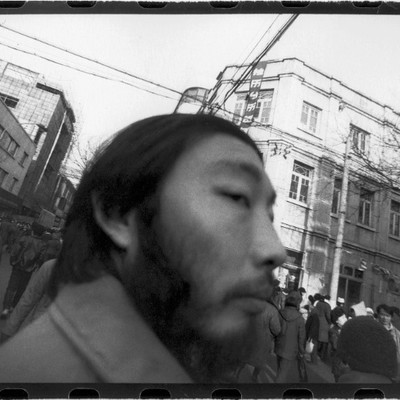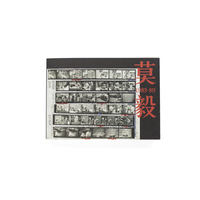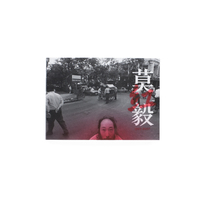Mo Yi "Eighties-Father and Old Landscapes"
Mo Yi was born in Tibet in 1958, began photography in 1982 and moved to Tianjin soon after. He now lives in Beijing. Mo Yi is a pioneering artist of Chinese photography.
Zen Foto Gallery is pleased to host its second solo exhibition of photographs by Mo Yi. The exhibition “Eighties” will be held in two stages using 1987 as a watershed. The first exhibition (7–22 April, 2015) selects works from two series taken before 1987, “Fathers” and “Old Landscapes” . This is the first exhibition outside China of Mo Yi’s earlier works. The exhibition comprises 23 silver gelatin prints by the artist. The second exhibition (Jan 2016) will feature Mo Yi’s major works taken after 1987, in which he broke through existing photographic conventions. Zen Foto Gallery will also publish the book “Eighties” by Mo Yi.
In the early 1980s, Mo Yi used a telephoto lens to shoot in a “mop-up” style in the street, both to explore reality and to express his emotions through photography. “Fathers” was the first time for him to take a series of photographs with an underlying concept. 1987 was the year in which Moyi made fundamental changes to his artistic practise. “My Illusory City” used multiple exposures to depict a sense of isolation in the big city. “1m, the scenery behind me” captured the gloomy atmosphere immediately prior to the Tiananmen Square protests, fixing his camera behind his head and photographing people just one meter behind him. “The Swing Bus” was shot inside buses soon after the Tiananmen Square protests in the autumn of 1989, the congealed greyish air and the drifting feeling on the buses could be regarded as reflections of the status of China and of the artist’s mind at the time.
Through these exhibitions, we will be able to see how Mo Yi’s art evolved during the 1980s. In particular 1987 was the year he strode into experimental art, which brought revolutionary changes to photography as a mode of expression and the use of the camera as a tool. This period can be seen as an important stage in which Moyi developed his artistic practise to be used in subsequent years. As part of the 85 New Wave Movement in China, photography has received relatively little attention to date and so, through this exhibition, we also examine the avant-garde movement of Chinese photography in the 1980s.
"This exhibition includes works from the earliest part of my 33-year photography career. It was a time when China had started to undergo its opening-up policy. Photography in the cultural arena was mimicking salon photography or the modernist style; people praised such things as small flowers and landscape. In the mainstream of 1980s photography, beauty, form and sentimentalism were valued most highly.
Before I moved to the city (Tianjin), there had always existed the true landscape of nature all around me. However, in the urban environment, I felt uneasy and was compelled to look back at those old photos. I named them “Landscape,” which reflects my sarcastic view of the big city. It also contains an ironic reference to the landscape boom in Chinese photography in the last 20 years.
Regarding the other series, “Father”, the generation which was called “father” by youngsters in the 1980s – they were as if kept in a pickle jar for more than 30 years, as they experienced over 10 political movements. Their brains and lives were totally changed and ruined. Many people depict only how good-natured they were, long-suffer and patient. What I tried to express, however, was how they were changed in a sorrowful and complicated way, and how human relationships became so abnormal and strange.
Such photographs were rare in China. In the 1980s, it was almost impossible to find art photography with a critical mind. These photos are special to me too, since I am no longer able to take photos in this style.
In the winter of 1987, I stepped forward onto a new stage.”
ーMo Yi
Related Article
Mo Yi - Eyes that embody ever-changing China
-
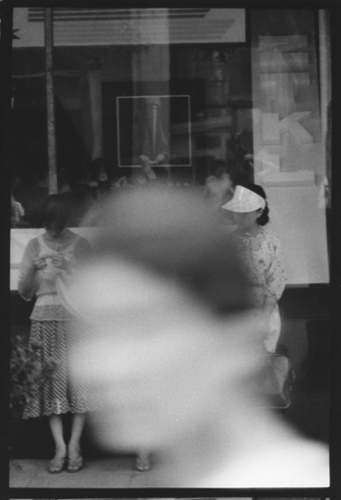 Mo Yi "Old Landscapes", 10x12 inch, 1983-1985 © Mo Yi
Mo Yi "Old Landscapes", 10x12 inch, 1983-1985 © Mo Yi -
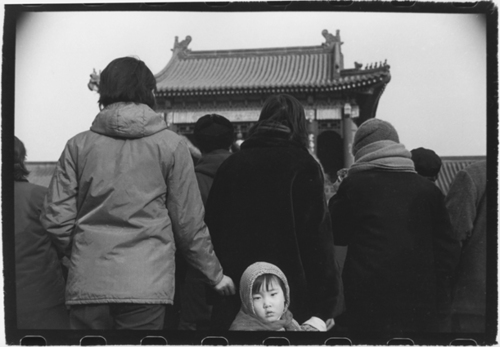 Mo Yi "Old Landscapes", 10x12 inch, 1983-1985 © Mo Yi
Mo Yi "Old Landscapes", 10x12 inch, 1983-1985 © Mo Yi -
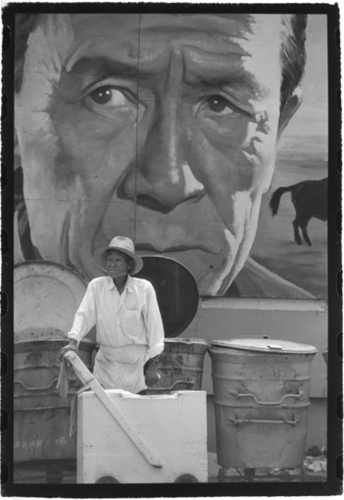 Mo Yi "Father", 10x12 inch, 1984-1987 © Mo Yi
Mo Yi "Father", 10x12 inch, 1984-1987 © Mo Yi -
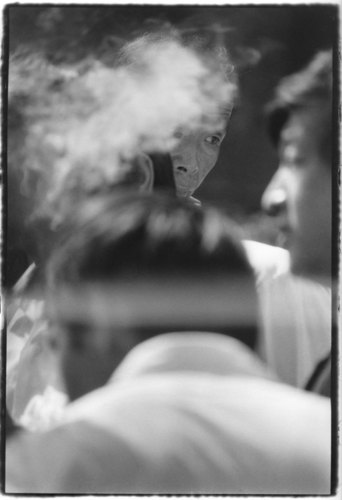 Mo Yi "Father", 10x12 inch, 1984-1987 © Mo Yi
Mo Yi "Father", 10x12 inch, 1984-1987 © Mo Yi -
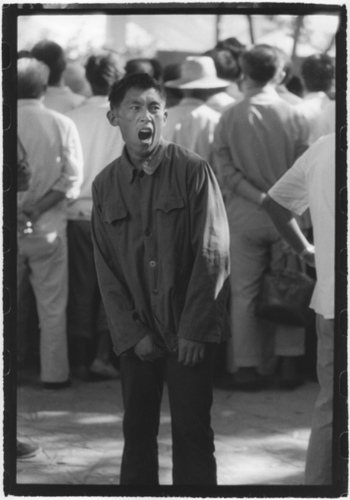 Mo Yi "Old Landscapes", 10x12 inch, 1983-1985 © Mo Yi
Mo Yi "Old Landscapes", 10x12 inch, 1983-1985 © Mo Yi
